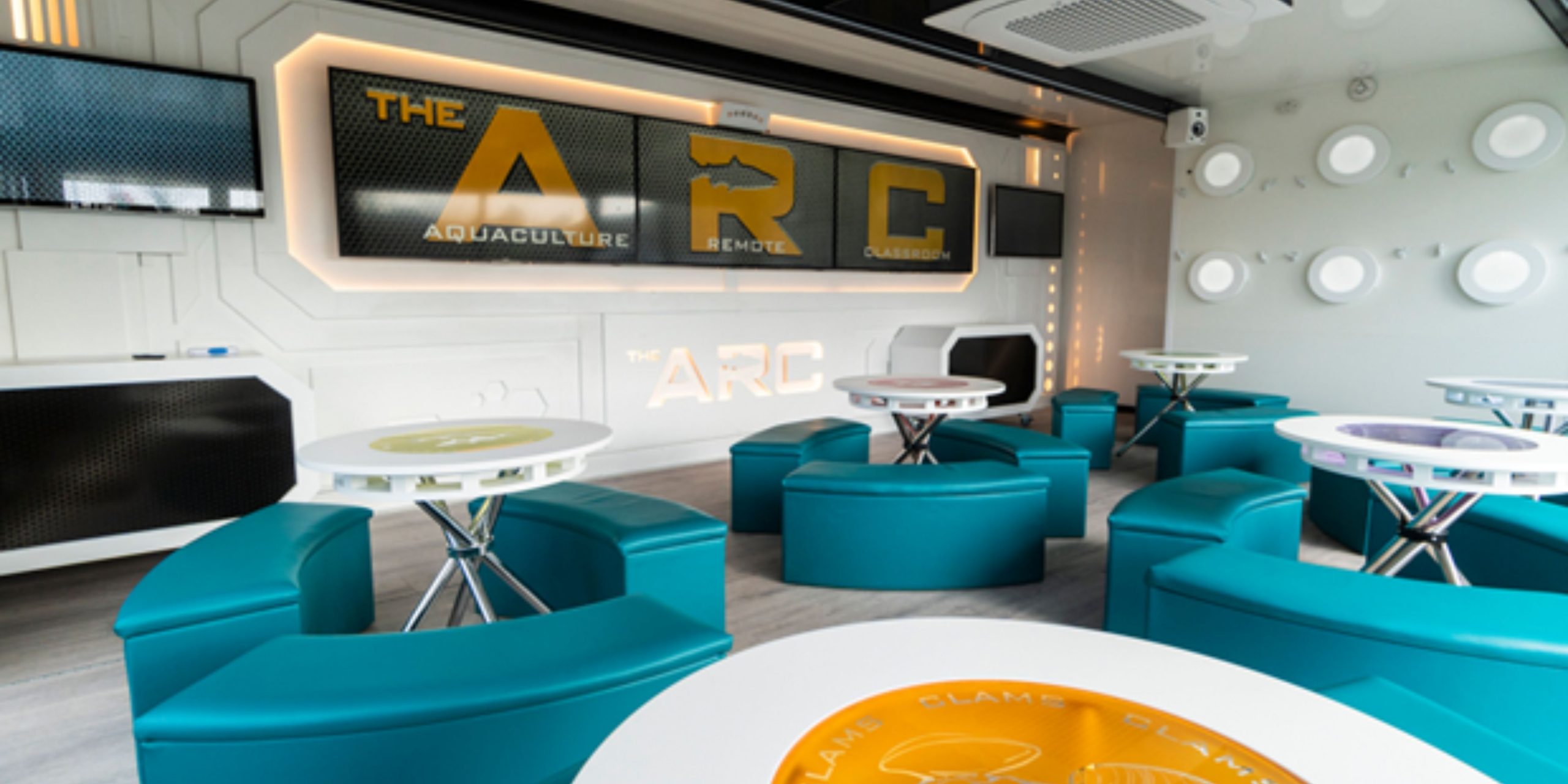In many countries around the EU, small-town coastal communities are struggling to retain young people in the aquaculture sector. This is also the case on Ireland’s west coast, where local oyster producers are looking for new and innovative ways to promote this culturally and historically significant industry with the younger generations and improve its public perceptions.
Ireland’s Seafood Development Agency Bord Iascaigh Mhara (BIM) has taken things into its own hands with the EU-funded Aquaculture Remote Classroom (ARC). This mobile classroom tours small towns around the country, delivering aquaculture education and awareness to primary schools.
The ARC brings the classroom to the students in rural areas, completely free of charge to participating schools. The project focuses on strengthening the “social licence” of the aquaculture industry, improving public opinions on aquaculture and getting public support for new aquaculture investments in local communities.
Delivering awareness to students’ doorsteps
Part of the European Commission’s “Inseparable” and “#FarmedintheEU” initiatives, the EU-funded ARC project promotes generational renewal in Ireland’s coastal aquaculture communities. With its fully mobile classroom, the project provides aquaculture courses directly to primary schools around the country.
This truck-sized, mobile classroom travels throughout Ireland teaching primary school children about the importance of the country’s aquaculture industry. It usually parks outside a schools to deliver engaging lessons on the importance of aquaculture for the local economy. Through a combination of group work, problem-solving, active learning and memory exercises, as well as immersive virtual reality lessons, students learn the ins and outs of Irish aquaculture.
The classroom has been in service since 2019. It contains all the high-tech tools needed to give its young participants an engaging educational experience.
A hands-on introduction to aquaculture
With lessons taught by a team of scientists from BIM and local partner H2 Learning, as well as informative in-person demonstrations delivered by local aquaculture producers, the ARC programme teaches children the socioeconomic, environmental, cultural and nutritional value of the Irish aquaculture industry.
Casting a wide net
Since launching in 2019, the ARC has visited 71 primary schools, delivering in-person lessons to 2,627 students. During the Covid-19 restrictions, the ARC also hosted an 28 webinars, where reaching another 7,976 students through online workshops.
The ARC was present at seven public outreach events, engaging with 7,155 individuals, and receiving a total of 460 expressions of interest in its services.
From the very beginning, project beneficiaries noticed as much interest in their outreach activities from the local aquaculture industry representatives as from schools, indicating a successful engagement of local actors. The numbers of individual engagements have increased in recent years, as well, demonstrating a strong public interest in aquaculture education.
Source: European Commission | Ocean and Fisheries (https://bit.ly/43gzxlJ)
